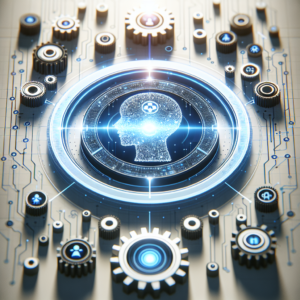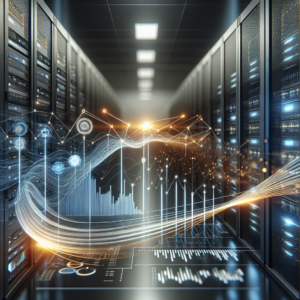What does the future of digital ethics look like for me, and how does it impact my everyday choices in our increasingly digital world?
Understanding Digital Ethics
Digital ethics revolves around the moral implications of digital technology and our interaction with it. In a world that thrives on data, algorithms, and machine learning, I often wonder how these advancements affect my privacy, consent, and overall rights. The rise of artificial intelligence and big data presents both opportunities and challenges, leading me to contemplate what ethical standards I should expect as a digital citizen.
The Importance of Digital Ethics
The essence of digital ethics lies in its relevance not just to technology creators or regulators but to individuals like me. It shapes my experiences with technology, influencing how I perceive trust, security, and fairness in the digital landscape. If I’m using an app that tracks my health or engaging in e-commerce, I deserve assurance that my data is handled responsibly and that I’m treated fairly.
Key Principles of Digital Ethics
Understanding the significant principles of digital ethics helps me navigate the complexities of technology. Here are some core principles I often consider:
| Principle | Description |
|---|---|
| Privacy | The right to control personal information and data. |
| Transparency | The open communication about how data is used. |
| Accountability | Holding entities responsible for their actions and decisions. |
| Autonomy | Respecting individuals’ rights to make informed choices. |
| Fairness | Ensuring equal access and opportunities in digital spaces. |
These principles serve as a guide. They remind me to question whether the technologies I use respect these ethics and my rights as an individual.
The Role of AI in Digital Ethics
Artificial Intelligence (AI) is becoming a huge part of my daily life, and understanding its ethical implications has become increasingly important. As I interact with AI, everything from voice assistants to recommendation systems raises ethical questions worth exploring.
The Challenges AI Presents
AI tends to learn from data, and bad data can create biases that affect outcomes—potentially harming people like me. The ethical challenges involve algorithmic bias, decision-making transparency, and how AI impacts labor markets. For instance, if I’m applying for a job, I need to consider how AI systems assess my application and whether those systems are working fairly.
AI Regulation and Guidelines
To counteract the ethical dilemmas posed by AI, there are ongoing efforts to create frameworks that guide development and usage. Guidelines that prioritize fairness, accountability, and transparency are becoming essential in the tech industry. By promoting ethical AI development, I can participate in conversations about how innovations can align with societal values.
Data Privacy in the Digital Age
Data privacy is a fundamental concern that touches nearly every aspect of my online life. When I share my information with various platforms, I often wonder how it is stored, processed, and shared.
What Privacy Means to Me
Privacy entails having control over my personal information. It assures me that my data isn’t just being collected indiscriminately. As I navigate websites and apps, I’ve grown accustomed to reading privacy policies, though they can often feel tedious.
Legislative Measures: GDPR and Beyond
Legislation like the General Data Protection Regulation (GDPR) in Europe has raised the bar for data privacy standards globally. It has empowered me as a user by enhancing my rights regarding my personal data. I now have the ability to access my data, correct inaccuracies, and even ask for erasure, which makes me feel more secure in my digital interactions.
The Ethical Use of Social Media
Social media has drastically changed the way I communicate, but it also poses ethical questions about privacy, misinformation, and content moderation.
The Dilemma of Misinformation
As I scroll through my feed, I often encounter information that may not be accurate. The impact of misinformation can lead to real-world consequences. Hence, I must be critical of what I see, seeking reliable information rather than accepting everything at face value.
Content Moderation and Censorship
Platforms have their own guidelines for what is acceptable. When I post something, there’s always a chance it may be flagged or removed based on those guidelines. This brings me to think about the ethical implications of censorship. While moderation can protect users from harmful content, it can also infringe on freedom of expression.
The Digital Divide and Accessibility
In an age dominated by technology, the digital divide complicates access to opportunities for many individuals. It’s essential to recognize that not everyone shares the same level of access to digital tools and the internet.
Understanding the Digital Divide
The digital divide refers to the gap between those who have easy access to technology and those who do not. In my community, I see families lacking internet access or the latest devices, which limits their ability to engage in educational or economic opportunities.
Promoting Digital Inclusion
Efforts to bridge this divide must be made. Initiatives that focus on providing affordable access and quality education on technology help ensure that everyone can participate in the digital world. As a digital citizen, I can advocate for policies to support these initiatives, fostering a more inclusive community.
The Future of Work and Digital Ethics
The world of work is transforming due to automation and remote capabilities. As I navigate my career, I must understand how these changes impact ethical considerations in the workplace.
Remote Work and Surveillance
Remote work has grown popular, but it comes with ethical concerns related to surveillance. Employee monitoring tools can help track productivity, but there’s a fine line between oversight and invasion of privacy. I want to work for companies that respect my autonomy while ensuring the effectiveness of the team.
Ethical Considerations in Automation
As more tasks become automated, ethical questions about job displacement arise. I often think about the responsibilities companies have in retraining employees whose jobs may be affected by AI and automation. It’s crucial for businesses to prioritize the well-being of their staff while adapting to technological advancements.
Cybersecurity and Ethics
Cybersecurity is a hot topic as cyber threats become more sophisticated. I want to know that my information is safe while navigating the digital space.
Ethical Responsibilities of Organizations
Organizations that collect my data have an ethical duty to protect it. Breaches not only compromise my information but can also affect my trust in those companies. As a user, I must remain aware of how organizations prioritize data security and whether they take appropriate actions to prevent breaches.
The Role of Individuals in Cybersecurity
While organizations bear responsibility, I also play a part in my cybersecurity. Practicing good habits, like using strong passwords and being cautious of phishing attempts, can make a big difference. I should also educate myself on potential threats and remain vigilant when sharing information online.
The Intersection of Technology and Human Rights
As technology evolves, its impact on human rights cannot be overlooked. I often consider how technology can either support or undermine my rights.
Surveillance and Human Rights
The rise of surveillance technologies raises significant ethical questions. While these technologies can enhance security, they also pose risks to privacy and freedom. I regularly reflect on the balance between safety and personal rights, advocating for practices that honor human dignity.
Technology for Social Good
Conversely, technology can be a powerful tool for social good. I have witnessed how movements leverage digital platforms for advocacy and change. Assigning ethical standards to technology can enable it to uplift voices, promote awareness, and lead to societal progress.
Conclusion: Envisioning an Ethical Digital Future
Reflecting on all the aspects of digital ethics, I see a world where technology serves not just innovation but also humanity. Each principle we’ve discussed—privacy, accountability, fairness—should guide us toward a more equitable and ethical digital landscape.
As a digital citizen, my role is vital. I must remain informed and active, advocating for ethical standards that protect my rights and those of others. In this rapidly changing landscape, fostering dialogue around ethics ensures that I am not just a passive participant but an empowered force in shaping the future of technology.
As I navigate through my digital life, I am excited yet cautious. The journey ahead holds immense potential, but it’s imperative to keep ethics at the forefront of the conversation. By promoting common values and responsible practices, we can strive for a digital world that respects and uplifts everyone involved.






